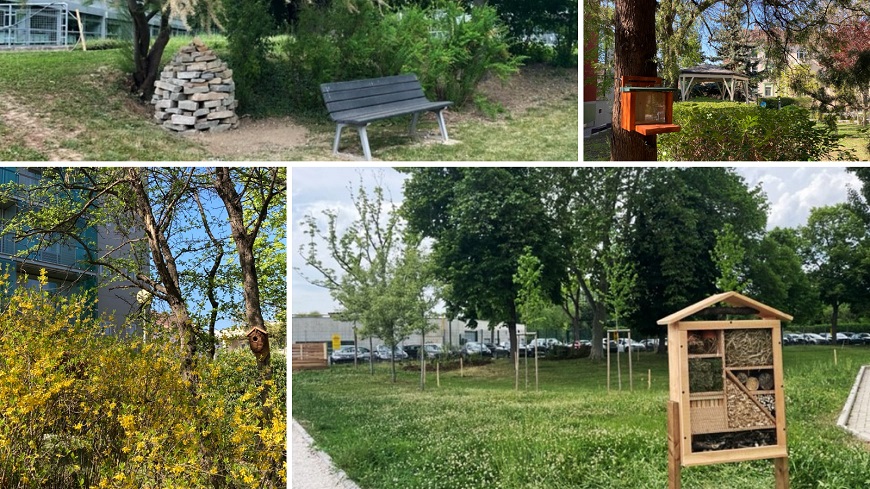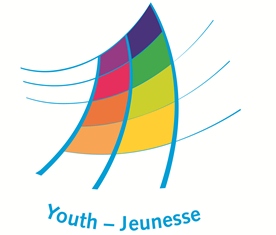Our commitment to biodiversity
The European Youth Centres (EYCs) highlight recent initiatives to promote biodiversity in their garden and make their impact on the environment more positive, in response to suggestions from youth participants.
Led by the statutory bodies of the youth sector, in particular the Advisory Council on Youth (CCJ), these initiatives aim to improve the environmental impact of the youth sector (for more information see our sustainability checklist).
In 2021, the EYCS already had a flower meadow and an insect hotel where mason bees took up residence.
This spring, colleagues and youth participants will be able to see new pollination-boosting plant species, local shrubbery and wildflower areas in the EYCS garden. There will soon be Benjes hedges (*) and mounds of rocks and leaves providing homes for local fauna, and the habitat on offer will be further expanded with new insect hotels and nesting boxes for birds and bats.
As a sign of their continuous commitment to sustainability and to the process of greening the Council of Europe’s youth sector, the EYC Budapest team has also installed bird houses and bug hotels in the EYCB garden. This way the colleagues wish to contribute to the protection of bird species, and to reversing the considerable decline in pollinator populations that are a key component of global biodiversity.
* : The Benjes hedge, dead hedge or dry hedge, is a hedge made up of dead wood, dead leaves, roots, or weeding waste, stabilised by stakes.








